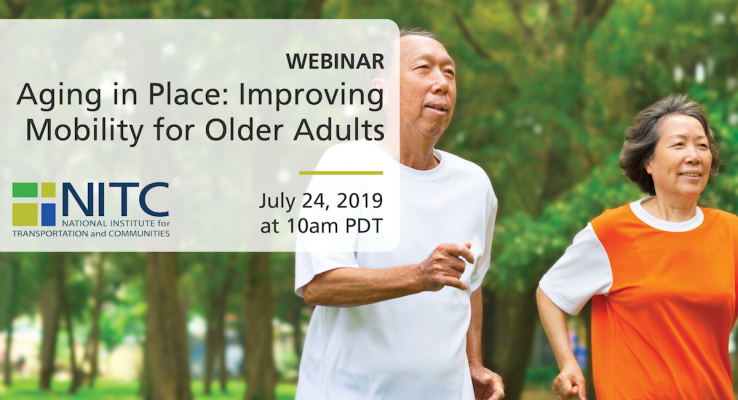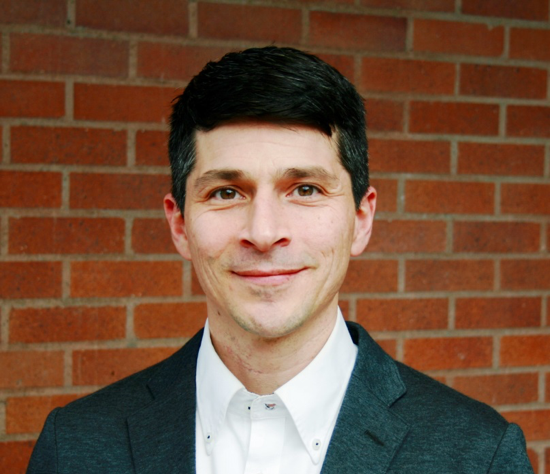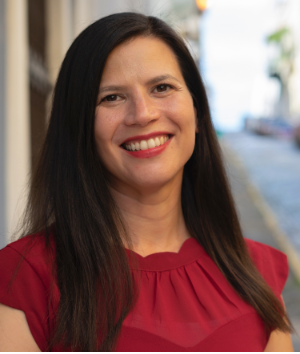
PRESENTATION ARCHIVE
Miss the webinar or want a look back?
OVERVIEW
Aging in place can simply be defined as staying in your home as you age; aging in place concerns include mobility, social activities, safety, accessibility, and long term supports and services in one’s neighborhood and society. In order to facilitate aging in place, organizations in Salt Lake County, Utah and the City of Portland, Oregon, provided home modifications to income-qualified older adults that intended to enable aging in place. Such modifications alter individuals’ life-space mobility – a concept recently used by gerontologists and that we introduced to planners – from within one’s home to the broader community. A unique methodological approach taken by researchers merged several existing data collection instruments with additional interview questions of residents who recently received home modifications.
KEY LEARNING OUTCOMES
- Attendees will better understand the concepts of life space mobility and aging in place as it pertains to home modifications.
- Attendees will learn about a unique methodological approach that combined existing instruments with additional interview questions.
- Attendees will hear recommendations for researchers, planners, and policymakers that seek to enhance life space mobility and aging in place.
THE RESEARCH
This webinar is based on a study funded by the National Institute for Transportation and Communities (NITC) and conducted at the University of Utah and Portland State University. Read more about the NITC research: Life-Space Mobility and Aging in Place.
SPEAKERS
Alan DeLaTorre, Portland State University
 Alan DeLaTorre is a research associate at Portland State University’s Institute on Aging where he coordinates PSU’s Senior Adult Learning Center and Age-Friendly Portland and Multnomah County initiative. Dr. DeLaTorre serves as the chair of the Age-friendly Design committee for the Academy for Gerontology in Higher Education, as a board member for the Oregon Gerontological Association, and on several local communities in an effort to shape community livability and accessibility. He is passionate about utilizing research to inform and advance community planning and livability.
Alan DeLaTorre is a research associate at Portland State University’s Institute on Aging where he coordinates PSU’s Senior Adult Learning Center and Age-Friendly Portland and Multnomah County initiative. Dr. DeLaTorre serves as the chair of the Age-friendly Design committee for the Academy for Gerontology in Higher Education, as a board member for the Oregon Gerontological Association, and on several local communities in an effort to shape community livability and accessibility. He is passionate about utilizing research to inform and advance community planning and livability.
Ivis Garcia Zambrana, University of Utah
 Ivis Garcia Zambrana is an Assistant Professor in City and Metropolitan Planning (CMP). At CMP she works in close collaboration with the University Neighborhood Partners (UNP) and she is also affiliated with the Metropolitan Research Center (MRC). Her philosophy, methodology, and ethos revolves around conducting research and plans in partnership with stakeholders, being from the grassroots or from institutionalized forms of government. Dr. Garcia is an urban planner with research interests in the areas of community development, housing, and engagement. She has spent time as a community organizer and planner in Albuquerque, New Mexico, San Francisco, California, Springfield, Missouri, Washington, D.C. and Chicago.
Ivis Garcia Zambrana is an Assistant Professor in City and Metropolitan Planning (CMP). At CMP she works in close collaboration with the University Neighborhood Partners (UNP) and she is also affiliated with the Metropolitan Research Center (MRC). Her philosophy, methodology, and ethos revolves around conducting research and plans in partnership with stakeholders, being from the grassroots or from institutionalized forms of government. Dr. Garcia is an urban planner with research interests in the areas of community development, housing, and engagement. She has spent time as a community organizer and planner in Albuquerque, New Mexico, San Francisco, California, Springfield, Missouri, Washington, D.C. and Chicago.
Ja Young Kim, University of Utah
 Ja Young Kim is a doctoral student in the Department of City and Metropolitan Planning at the University of Utah. She holds a Bachelor of Architecture from Hanyang University, Seoul, Korea and a Master of City Planning from the University of California, Berkeley. Kim is interested in the issue of race, place, and environmental equity set in the frame of the built environment and urban form. Building upon her previous research on the potential of urban design to improve walkability in relation to the needs of an aging urban population, in Oakland Chinatown, her research aims to better understand the impact of the built environment on the well-being of older populations and assess diverse public needs on the issues to develop feasible planning interventions. Before joining the MRC, she worked as an architect, urban designer and planner in Berkeley and San Francisco, and more recently as a researcher for the Seoul Institute developing policies for energy efficient buildings and towns in Seoul, Korea.
Ja Young Kim is a doctoral student in the Department of City and Metropolitan Planning at the University of Utah. She holds a Bachelor of Architecture from Hanyang University, Seoul, Korea and a Master of City Planning from the University of California, Berkeley. Kim is interested in the issue of race, place, and environmental equity set in the frame of the built environment and urban form. Building upon her previous research on the potential of urban design to improve walkability in relation to the needs of an aging urban population, in Oakland Chinatown, her research aims to better understand the impact of the built environment on the well-being of older populations and assess diverse public needs on the issues to develop feasible planning interventions. Before joining the MRC, she worked as an architect, urban designer and planner in Berkeley and San Francisco, and more recently as a researcher for the Seoul Institute developing policies for energy efficient buildings and towns in Seoul, Korea.
PROFESSIONAL DEVELOPMENT
This 60-minute webinar is eligible for 1 hour of professional development credit for AICP (see our provider summary). We provide an electronic attendance certificate for other types of certification maintenance.
LEARN MORE
Sign up for our newsletter to get updates on our events.
This webinar is hosted by the Transportation Research and Education Center (TREC) at Portland State University. The research was funded by the National Institute for Transportation and Communities (NITC), a program of TREC and one of five U.S. Department of Transportation national university transportation centers. The NITC program is a Portland State-led partnership with the University of Oregon, Oregon Institute of Technology, University of Utah and new partners University of Arizona and University of Texas at Arlington. We pursue our theme — improving mobility of people and goods to build strong communities — through research, education and technology transfer.
